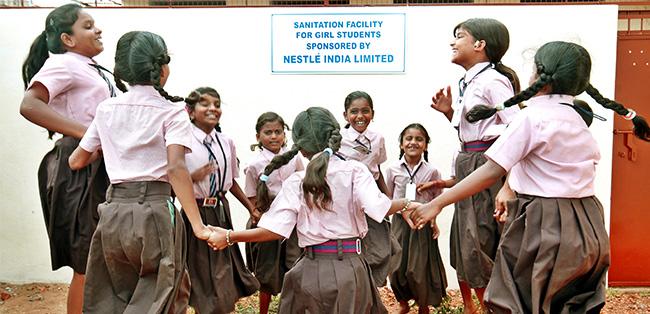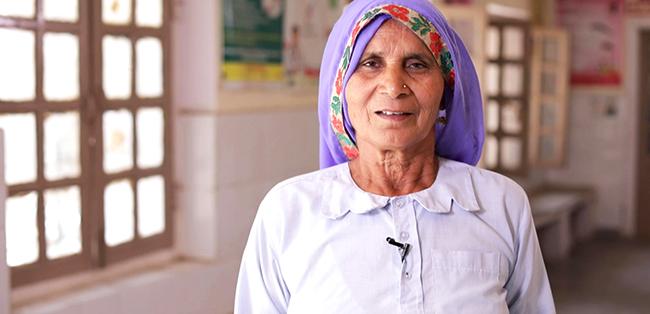Good Sanitation: How Toilets Can Help Children Learn for Longer
In many schools in India, a lack of clean, safe toilets isn’t just a matter of convenience - they can make the difference between a girl receiving the education or being forced to stay at home.
“Parents don’t feel secure sending their daughters to school when there are no sanitation facilities,” Puja Dangi, a secondary school teacher in Nangal Kheri explains.
And it’s not just a safety issue. It’s estimated (pdf, 5Mb) that a quarter of girls drop out of school for reasons related to the lack of basic sanitation. In some places, nearly two-thirds skip school during menstruation and one-third eventually drop out altogether.
When toilets were built at the Government Senior Secondary School in Nangal Kheri, it had a positive impact on the attendance of girls in the school.
School attendance rises
“There has been a rise in the attendance of girl students,” says Puja Dangi. “Because the sanitation facility is on the school premises, it is great for the children from a security point of view.”
Nestlé India has supported the building of sanitation facilities for female students in schools near its factories since 2009.
430 facilities have been built to date, giving 150,000 girls access to modern toilets and the opportunity to lead healthier lives, as well as pursue their academic dreams.
Similarly, clean water supplies are vital to any thriving community, reducing exposure to water-borne diseases and easing the burden of ill health. Here too, ready access unlocks opportunities for women and girls.
For much of her life, 60 year-old Gaytri Devi walked hours each day fetching poor quality water for her family. Drinking it sometimes made them sick, but she had no choice.
High quality drinking water
So when Gaytri’s village of Manjari Kalan finally gained its own clean drinking water source, it transformed everyone’s lives. Fewer people are sick, and women and girls have more time to devote to education or work.
The facility in Gaytri’s village was built as part of Nestlé India’s partnership with the Department of Medicine and Health in Rajhastan state – to offer access to clean, high quality drinking water at twelve Public Health Centres.
Nestlé India has funded 257 similar facilities in schools near its factories since 1999, working with our NGO partners Enable Health Society and Piramal Sarvajal.
140,000 pupils in India have benefited from the company’s global commitment to provide access to clean water, sanitation and hygiene in communities where it operates.
Providing sanitation and clean water in schools and communities also helps us achieve the United Nations Global Goals – Good Health and Wellbeing, Quality Education, Gender Equality and, of course, Clean Water and Sanitation.
As Gaytri says, “Access to water has ended our struggle and empowered me to do more for my family and myself.
“All the villagers are extremely happy as it has improved everyone’s lives.”



